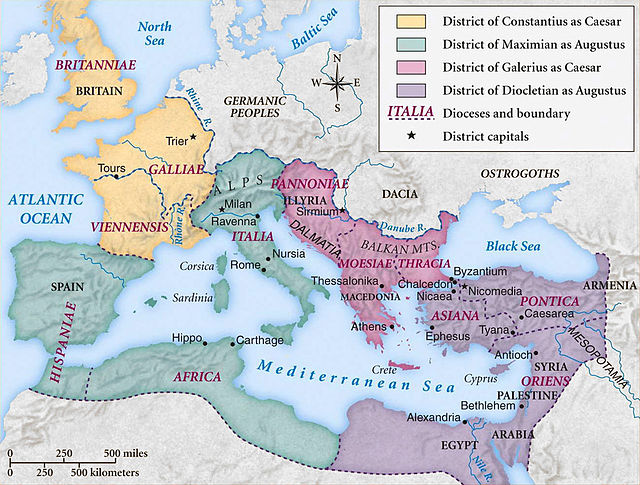293
293
Calendar year
Year 293 (CCXCIII) was a common year starting on Sunday (link will display the full calendar) of the Julian calendar. In the Roman Empire, it was known as the Year of the Consulship of Diocletian and Maximian (or, less frequently, year 1046 Ab urbe condita). The denomination 293 for this year has been used since the early medieval period, when the Anno Domini calendar era became the prevalent method in Europe for naming years.
This article needs additional citations for verification. (November 2017) |

